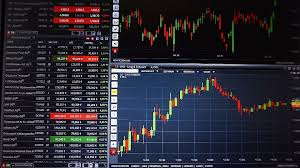
Forex trading education is crucial for anyone looking to succeed in the fast-paced world of currency trading. With the forex market being one of the largest and most liquid markets globally, understanding its dynamics is essential for traders. Resources such as forex trading education exglobal.pk provide valuable insights and platforms for learning and improvement in trading skills.
Understanding Forex Trading
Forex, short for foreign exchange, refers to the global marketplace where currencies are traded. It operates 24 hours a day, five days a week, with major trading centers located in cities like London, New York, Tokyo, and Sydney. The forex market allows traders to buy, sell, and exchange currencies based on their values relative to one another.
The Basics of Forex Trading
To begin your journey into forex trading, you must first familiarize yourself with some basic terms:
- Currency Pairs: Forex trading is conducted in pairs, such as EUR/USD or GBP/JPY. The first currency is the base currency, while the second is the quote currency.
- Pip: A pip (percentage in point) is the smallest price movement in a currency pair, typically the fourth decimal place.
- Leverage: Leverage allows traders to control a larger position with a smaller amount of capital, offering the potential for increased profits — as well as losses.
Types of Forex Trading
There are different approaches to forex trading, each suited to different trading styles and goals:

- Day Trading: Day traders open and close positions within the same trading day, focusing on short-term price movements.
- Swing Trading: Swing traders hold positions for several days or weeks, aiming to capture price trends over a longer period.
- Scalping: Scalpers make numerous trades throughout the day, seeking to profit from small price changes.
The Importance of Forex Trading Education
Investing in forex trading education is critical for several reasons:
- Informed Decision Making: Understanding market trends, indicators, and economic data helps traders make informed decisions rather than emotional ones.
- Risk Management: A solid education includes mastering the art of risk management, which is essential to protect capital and ensure long-term success.
- Strategy Development: Education provides traders with the knowledge necessary to develop and refine their trading strategies.
Where to Get Forex Trading Education
Traders today have access to a plethora of educational resources. Here are some options:
- Online Courses: Many platforms offer structured courses on forex trading, covering everything from the basics to advanced strategies.
- Webinars: Live webinars hosted by experienced traders can provide insights into real-time trading and allow for interactive learning.
- Books and E-books: There are countless books dedicated to forex trading that cover theories, strategies, and market analyses.
- Trading Communities: Joining online forums and communities can facilitate knowledge sharing between traders of all experience levels.
Key Strategies for Successful Forex Trading
As you delve deeper into forex trading, consider implementing the following strategies:
- Technical Analysis: Learn to read charts, use indicators, and identify trends. Technical analysis is a key component in making trading decisions.
- Fundamental Analysis: Understanding economic indicators, news events, and geopolitical developments can help you gauge the market’s direction.
- Employing Stop-Loss Orders: To protect your capital, always use stop-loss orders to limit potential losses on trades.
Continuous Learning and Adaptation
The forex market is always evolving, and as a trader, you must be willing to learn and adapt constantly. This could involve staying updated with the latest market news, exploring new trading technologies, or revisiting and revising your strategies based on past performance.
Common Mistakes to Avoid in Forex Trading
Throughout your trading journey, be mindful of the following common pitfalls:
- Over-leveraging: While leverage can enhance profits, it can also amplify losses. Be cautious and use leverage judiciously.
- Neglecting Risk Management: Failing to implement risk management techniques can lead to devastating financial consequences.
- Emotion-Driven Trading: Trading based on emotions such as fear or greed often results in poor decision-making.
Conclusion
Forex trading education is an ongoing process that is essential for anyone serious about succeeding in the currency markets. By investing time in learning and applying various strategies, traders can significantly increase their chances of becoming proficient and successful. Utilize available resources, develop your trading style, and always be prepared to learn from both your successes and failures.
